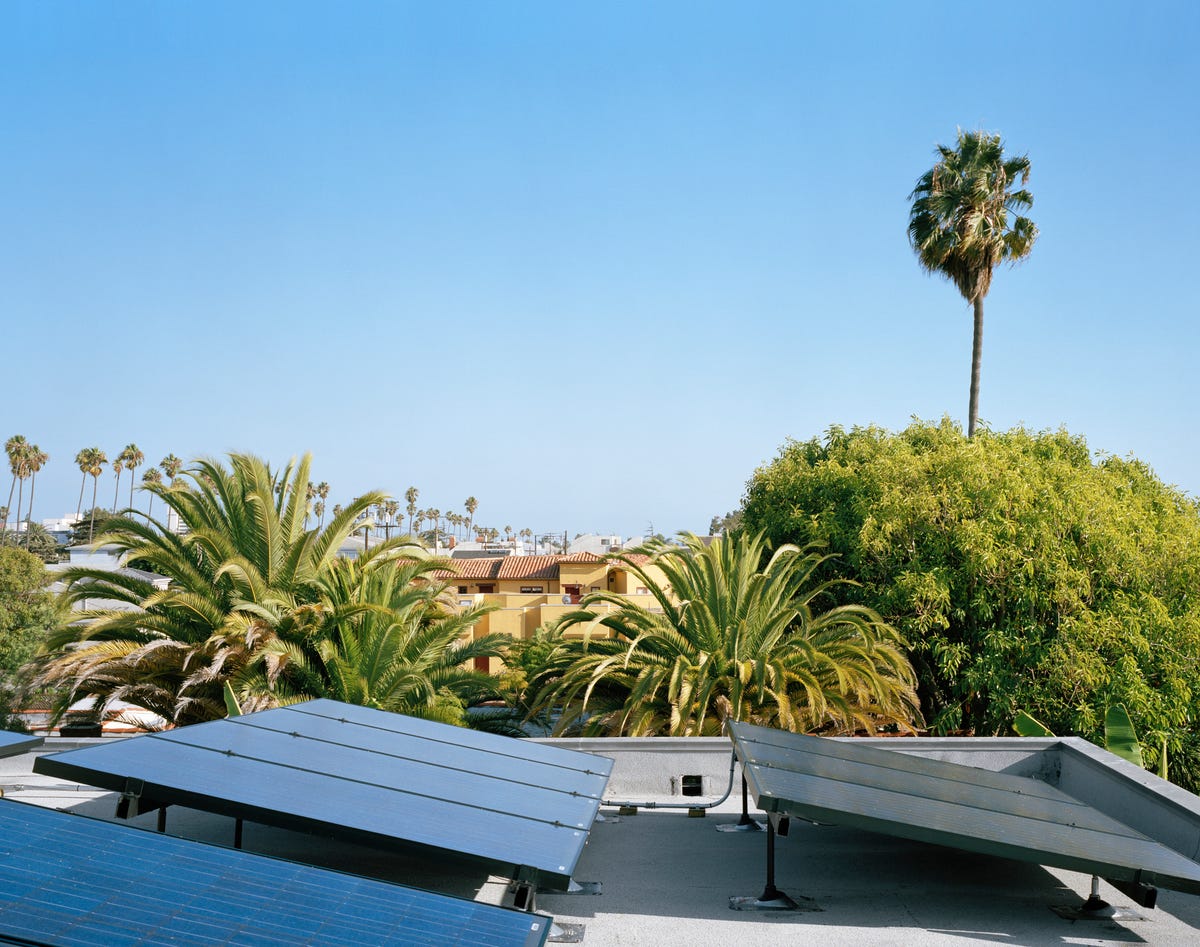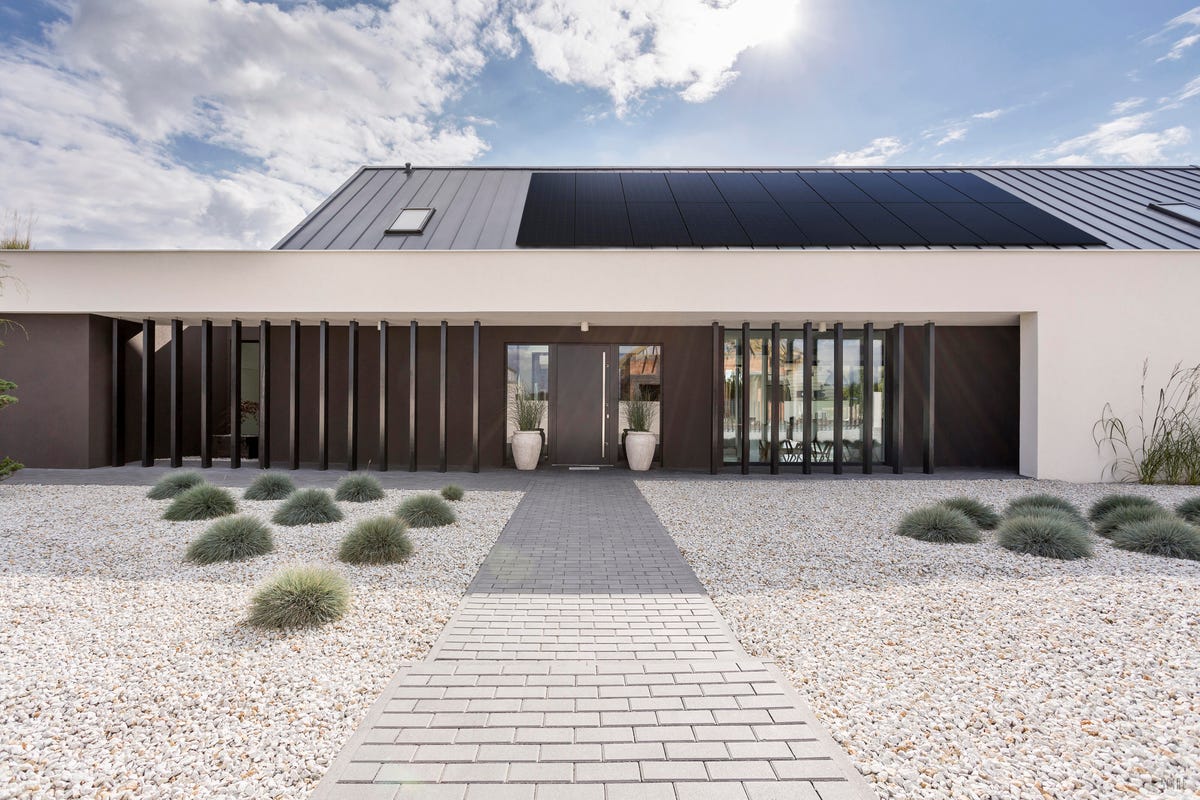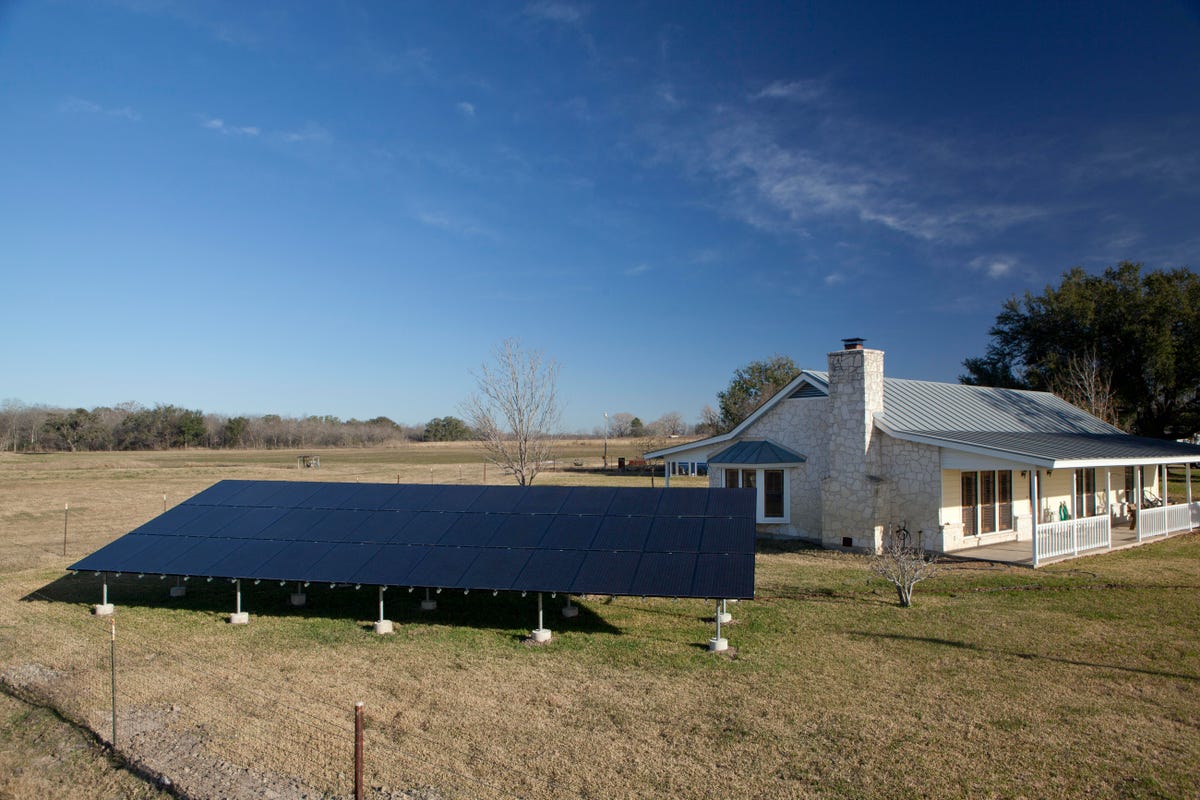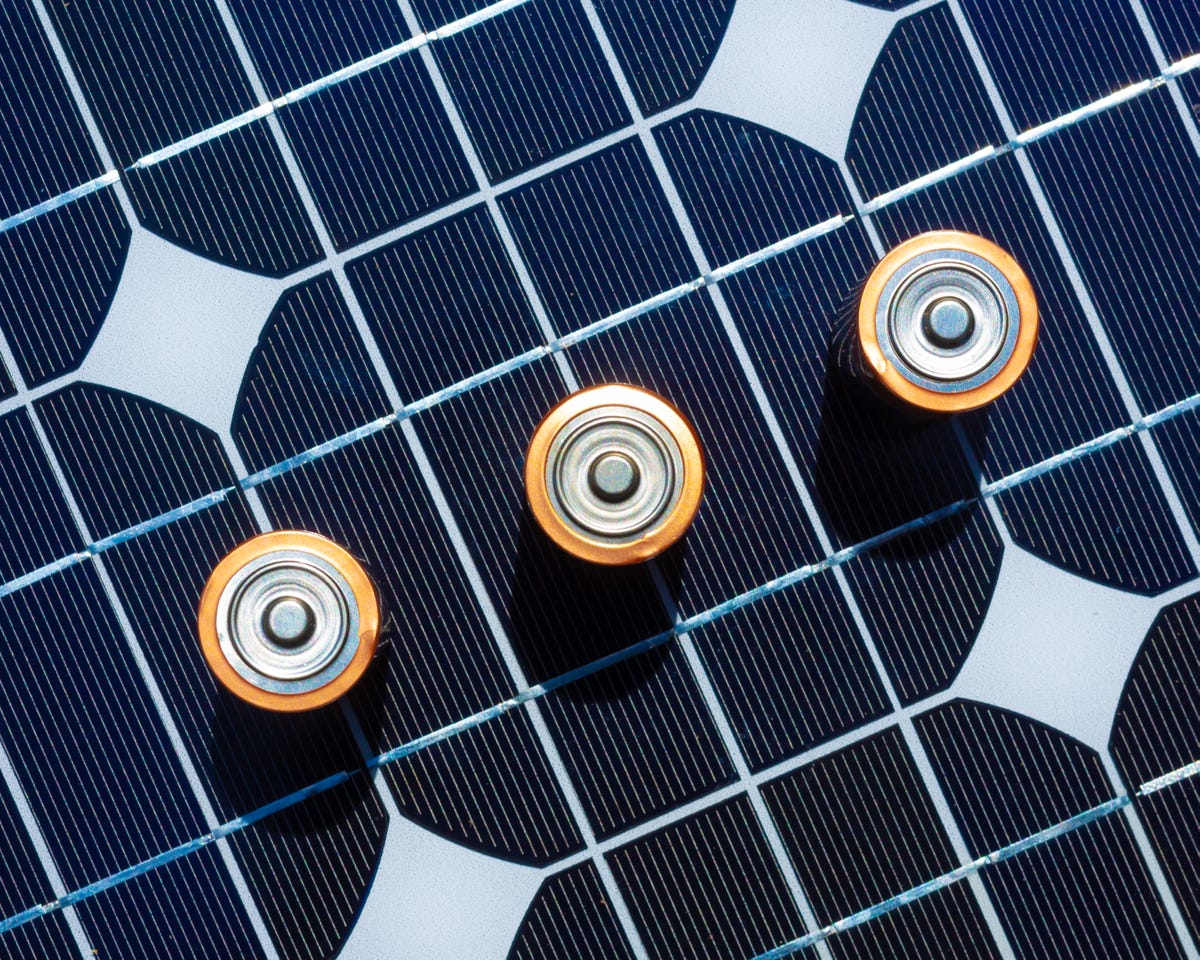Throughout the country, residential solar panels have become an increasingly popular option for generating energy for homes. The rising costs of energy across the US, along with falling prices for solar panels, and excellent federal tax incentives, have made solar powers a much more attainable and economically beneficial option for homeowners.
"If you looked at solar just a few years ago, costs have continued to come down since then," said Ben Delman, communications director at Solar United Neighbors. "It depends on your situation, but more and more homeowners and families are deciding that solar makes sense for them as a way to save money by taking control over where their electricity comes from."
Below, explore CNET's expert advice to get you through the process of purchasing solar panels.

Solar panels work in many different climates and are not just used in the sunniest.
Raimund Koch/Getty ImagesHow do solar panels work?
Buying a solar panel system means buying a lot of equipment the average person doesn't have reason to know about. In the most basic terms, photons from the sun are absorbed by the solar panels and converted into direct current, or DC, electricity. For this energy to be used in American homes, it has to go through an inverter attached to the solar array to become alternating current, or AC, electricity.
Read up on what you'll actually be buying with the stories linked below:
- The Most Efficient Solar Panels
- How Sand Becomes Solar Panels
- Here's How Solar Panels Turn Light Into Power
- How Much Energy Does a Solar Panel Produce?
- What's a Virtual Power Plant? Should You Join One?
- Solar Energy Basics: The Magic of Photovoltaic Panels
- Solar Panel Efficiency: What Is It and Why Is It Important?
- Solar Cell, Module, Panel and Array: What's the Difference?
- The Solar Panel Angle That'll Generate the Most Energy Possible
- What You Need to Know About Solar Inverters: Essential Solar Equipment
- Bifacial Solar Panels Generate More Electricity, but Not When You Put Them Here
Is there a solar panel option that works for me?
Fortunately for the solar-curious, many options exist for homeowners and even renters to get some or most of their electricity needs met with energy from the sun.
The most common way to go solar for homeowners is the installation of panels on their roofs. These systems can be purchased directly through an installer (or assembled for the DIYers) as a large cash purchase or through relatively affordable financing (such as a 1.99% APR 15-year loan). There are also options for rooftop solar for those who may not have the capital to get a project started. These are solar leases, where a homeowner pays a fixed monthly cost to a company who retains ownership of a solar system; or a power purchase agreement, in which a homeowner pays for the electricity generated by solar panels rather than the system itself.

Considering Solar Panels?
Our email course will walk you through how to go solar
Finally, both homeowners and renters in many places have access to community solar. This option allows people to opt in to a nearby solar farm to enjoy some energy savings.
- Yes, You Can Use Solar Power as a Renter
- Solar Power Purchase Agreements, Explained
- Solar Energy Just Became More Accessible for Renters
- Here's How to Know if Your Home Works for Solar Panels
- Should You Buy Ground-Mounted Solar Panels? What to Know
- Tesla Solar Roof: The Sleekest Solar Option Isn't Your Best One
- Power Your EV or Home With Clean Energy From a Solar Carport
- Community Solar: Get Solar Power for Your Home Without Rooftop Panels
- New Solar Shingles Get Rid of the Ugly, Complex Hassle That Can Be Part of Rooftop Solar

Regular cleaning can improve solar panel production, especially in dry, dusty climates.
SunPowerHow much do solar panels cost?
The costs of solar panels will depend on a few factors, including where you live, how much of your energy needs you want the system to cover, whether you install it yourself and whether you want a battery (which could cost as much as the system itself). The average cost was about $3 per watt in 2022 for an 8 kW system through an installer, according to the consulting firm Wood Mackenzie.
The way you pay for your system is vital. You'll notice the biggest hit to your bank balance by paying for solar outright, while financing will spread the expense out over years but with added interest. A lease or PPA is most friendly to the budget-minded, but you won't enjoy the long-term benefits that come with owning a system outright.
- How Much Do Solar Panels Cost?
- 4 Cheaper Solar Energy Options to Use at Home
- Free Solar Panels: Here's What the Fine Print Means
Here's How Solar Panels Can Earn You a Big Tax Credit - Tax Credits and Incentives Help Businesses Go Solar Too
- How to Finance Your Solar Panels: Cash, Loan, Lease and More
- Yes, You Can Get Tax Exemptions From Rooftop Solar — Here's How
How much do solar panels cost in my state?
Here's the average total cash price, cost per watt and system size for a solar panel system in your state, according to data from FindEnergy.com. These prices don't factor in tax credits or state incentives. Certain states don't have any FindEnergy solar data and are grayed out on the map.
How much money will solar panels save me?
If you're buying a system outright or financing it, you'll receive a 30% tax credit through the Inflation Reduction Act.
To get a better idea of when to expect a return on investment, look at how much energy you've consumed in the past year or two and how much it cost you. Then, working with an installer, figure out how much of your energy you'd like to offset with solar and how much the system will cost. Eventually, the savings from not having to buy electricity from your utility will be greater than the cost of the solar system itself.
"In terms of payback, broadly seven to 12 years is a decent average when you see returns from investment in solar after purchasing a system," Delman said.
- Do Solar Panels Save Money? Yes. Here's How
- How Net Metering Makes Home Solar Panels a Better Deal
- These 7 States Have the Best Tax Incentives for Solar Panels
- Solar Panels Eventually Pay for Themselves. This Formula Will Tell You When
- How to Approach Home Batteries if the New 30% Tax Credit Has Your Attention
- The Inflation Reduction Act Will Help You Pay for Solar Panels and Other Energy Upgrades

Ground-mounted solar panels might be a better option for some homes.
King Lawrence/Getty ImagesCan I install solar panels myself?
It is possible to install most of a solar panel system yourself — mounting the panels on your roof and connecting them to each other. But if your home is connected to a grid, you'll need to hire a licensed electrician for the final connection needed to feed electricity to your utility.
"Another thing to keep in mind if you're doing it yourself is whether the warranties for the panels that you purchase require them to be installed by a professional," Delman said. "Often when people do it themselves, they'll hire an electrician to do the finishing work so it can get certified. It's also good if you're not an expert to have somebody with expertise to just go over the wiring and make sure that everything is where it should be."
- The Pros and Cons of DIY Solar Panels
- Yes, You Can Make Your Own Solar Panels
Where should I shop for solar panels?
If you want to buy panels directly, most hardware stores and larger retailers have them available. If you'd like to get them through a professional, a good place to start, according to Delman, is the website of your local solar industry association (for example, the New York Solar Energy Industries Association). These organizations should have a list of its members, which will often include installers and suppliers. Typically, installers work with one or two solar panel brands.
"Look for an installer who's experienced, particularly with the kind of situation you have at your home," Delman said. "Have they worked with the same roofing materials? Do you want a ground mount system installed? Check reviews on Yelp, Angie's List, Google and others, and get references too." (Solar United Neighbors also offers resources for going solar, free of charge.)
The best way to make sure you're getting the best deal on your solar panels is to get multiple quotes and ask as many questions of your potential installers as you need. CNET has reviewed many of the national solar companies, but it's a good idea to check into local installers, too, who sometimes can offer lower prices.
- Best Solar Companies
- 7 Tips for Finding the Best Solar Installers Near You
- Solar Panel Buying Guide: Everything You Need to Know
How do I maintain solar panels?
Solar panel maintenance is generally minimal and fairly easy. Even so, we've got the info you need to keep your panels in the best possible shape.
- Solar Panels Get Less Efficient Over Time. Don't Worry About It
- Solar Panels Are Super Durable. How to Make Them Last Even Longer
- Yes, Solar Panels Deteriorate Over Time. Here's What You Need to Know
- How to Boost Your Solar Panel Performance Through Snow and Ice This Winter
Does solar work where I live?
Solar panels, in general, will work in a variety of climates, even those with frigid winters. The more important questions to ask are: Does my roof get adequate sunlight? Are any trees shading my roof? And most importantly, does my utility offer net metering?
Net metering is perhaps the most important aspect of going solar, in that it stipulates that your energy utility will pay you for the energy created by your solar panels that you don't consume. Net metering ensures that the return on investment in going solar is financially sound.
More on solar in your state
undefined
Do I need a backup battery?
For most homeowners, buying a backup battery is an expensive proposition, costing almost as much as a solar system itself. Solar batteries can cost anywhere from $12,000 to $22,000, according to the US Department of Energy. If your home is connected to the grid, the high price of batteries puts it squarely in the non-necessity column.
That being said, there are instances where a battery may be worth the expense. If your area is prone to frequent blackouts and/or you have medical needs that, for example, require cold insulin or medical equipment, a battery is a good investment. Batteries will also be a necessity if you live off the grid.
- Best Solar Batteries
- What It Takes to Go Off the Grid With Solar Panels
- Solar Battery Buying Guide: Everything You Need to Know
- Why You Need Home Batteries — And It's Not All About Blackouts

You'll need a battery to go off the grid with solar panels. A bigger one than these.
James Martin/CNETDoes solar increase the value of my home?
Going solar has another benefit for homeowners: It can boost the price of their properties if and when they decide to sell. According to studies by the Lawrence Berkeley National Lab and Zillow, homes with solar panels often sell for about $10,000 more compared to those that don't.
- Solar Panels Are a Big Draw for Gen Z House Hunters
- How Solar Panels Can Add Thousands to Your Home's Value
Are solar panels a scam?
No. Solar panels are a proven technology that can help you shift some of your energy use to cheaper, greener electricity. But that doesn't mean that scammy companies (while apparently rare) don't exist. The company discussed in the story linked below recently went out of business, but a bit of caution is a good thing.
- 7 Red Flags in a Solar Sales Pitch: How to Buy With Confidence
What is net metering?
Net metering — the process by which you're paid for electricity generated by your solar panels but sent back to the grid — is a critical factor in whether homeowners should go solar.
"Let's say during a beautiful sunny day, you're at work, the lights, TV and dishwasher are off, so you're probably generating more electricity from your system than you're consuming," Delman said. "When that happens, that electricity goes to the electric grid through your electric meter to be used by your neighbors. Net metering is what ensures you receive credit for that electricity so that your investment is still being paid back even if you're not using the electricity yourself."
You can see what your state's policy toward net metering is here.
- Are You Still Connected to the Grid if You Get Solar Panels?
- Net Metering Changes in California: How Will They Impact You?
- Net Metering: How You Can Get Paid for Solar Power You Generate
Should I go solar?
Solar won't be an option for everyone. If your home does not receive adequate sunlight due to shading on your roof, you live in a state without net metering or there's no community solar, going solar may not be viable for you.
But with rising energy costs and the falling price of solar panels, for many people there's never been a better time to go solar. There's options to go solar that should fit most people's needs, whether that's through financing, a solar lease, PPA or community solar, that will allow them to start seeing savings on their energy bills almost immediately. By most estimates, a solar system starts paying for itself after between seven and 12 years.
Powering your home with solar not only allows you to get your electricity from a clean source, but provides an unmatched return on investment that will save you money on your energy bills and boost the value of your home.
Our Experts
Written by
Andrew Blok,
Stephen J. Bronner
CNET staff -- not advertisers, partners or business interests -- determine how we review the products and services we cover. If you buy through our links, we may get paid.
Reviews ethics statement
Andrew Blok Editor I
Andrew Blok is a former editor for CNET who covered home energy, with a focus on solar. As an environmental journalist, he navigates the changing energy landscape to help people make smart energy decisions. He's a graduate of the Knight Center for Environmental Journalism at Michigan State and has written for several publications in the Great Lakes region, including Great Lakes Now and Environmental Health News, since 2019. You can find him in western Michigan watching birds.
Expertise Solar providers and portable solar power; coffee makers, grinders and products Credentials
- Master's degree in environmental journalism

Stephen J. Bronner Contributor
Stephen J. Bronner is a New York-based freelance writer, editor and reporter. Over his more than a decade in journalism, he has written about energy, local politics and schools, startup success tips, the packaged food industry, the science of work, personal finance and blockchain. His bylined work has appeared in Inverse, Kotaku, Entrepreneur, NextAdvisor and CNET, and op-eds written on behalf of his clients were published in Forbes, HR Dive, Fast Company, NASDAQ and MarketWatch. Stephen previously served as contributors editor and news editor for Entrepreneur.com, and was the VP, Content and Strategy, at Ditto PR. He enjoys video games and punk rock. See some of his work at stephenjbronner.com.
Expertise Energy | Local politics and Schools | Startup Success Tips | the Packaged Food Industry | the Science of Work | Personal Finance | Blockchain Credentials
- 2013 Media Award Winner Issued by Press Club Long Island
We thoroughly evaluate each company and product we review and ensure our stories meet our high editorial standards.